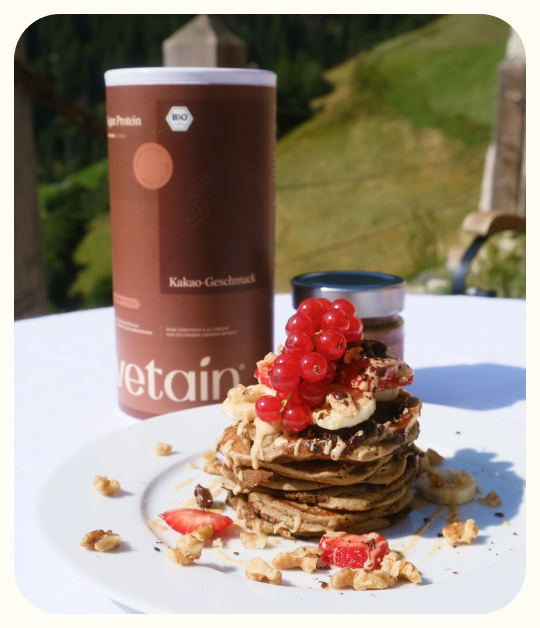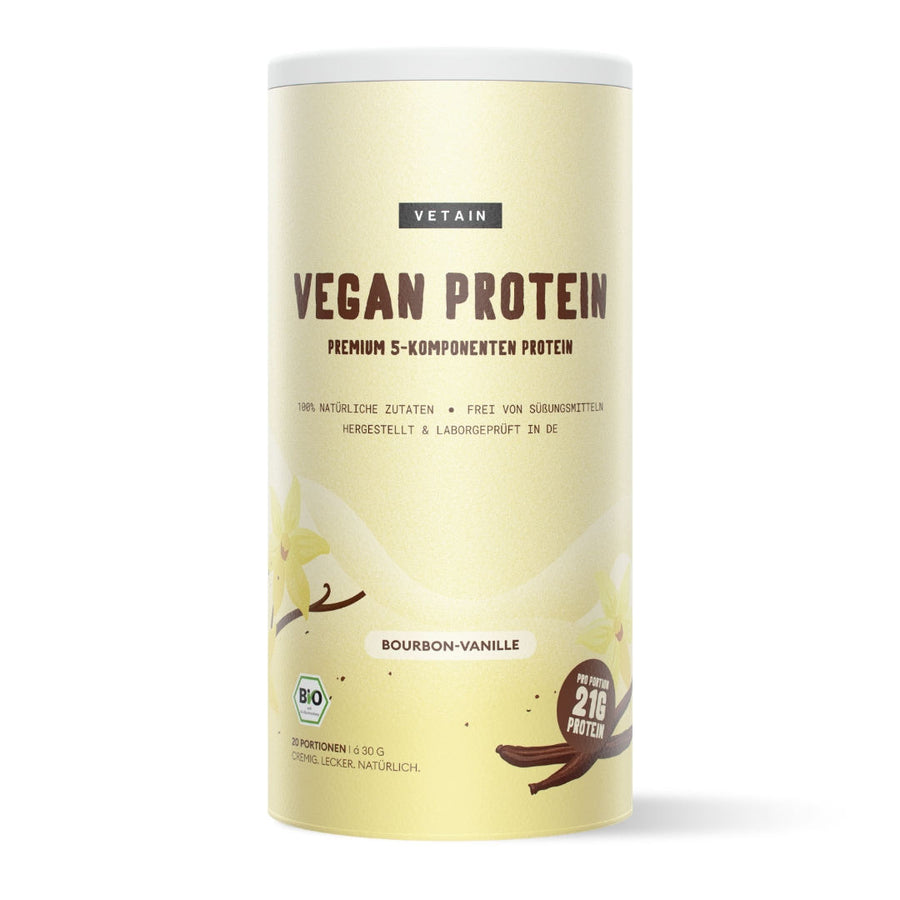You often hear that the value of vegan protein is not as "high" as that of animal protein. Even authors of renowned magazines and fitness trainers share this opinion. So it is not surprising that many people feel uncertain and prefer to rely on whey protein.
In the next 2-3 minutes, we will debunk this myth. First, we will explain what the term "value" or "high-quality" actually means and then show that plant-based protein can even be better suited for some than animal protein.
When is a protein high-quality?
The term "value" refers to the building blocks of proteins: amino acids. You’ve probably heard of amino acids and wondered: What are amino acids?
Actually, it’s quite simple! Every protein consists of different chains of amino acids. There are a total of 21 different amino acids. Of these, 8 are essential, which means they cannot be produced by the body itself and must be obtained through diet.
The essential amino acids include:
- Isoleucine
- Leucine
- Lysine
- Methionine
- Phenylalanine
- Threonine
- Tryptophan
- Valine
Now about the value: The more amino acids a protein contains, the more valuable it is. Animal protein contains all essential amino acids and is therefore considered very high-quality (index approx. 104).
So what is the value of vegan protein?
As already mentioned, the value of a protein depends on the amount of amino acids it contains.
At the beginning of this article, we mentioned that many magazines and fitness trainers say vegan protein is not as high-quality. This accusation is not unfounded. That’s because individual vegan protein sources (e.g. peas) do not contain all essential amino acids.
But how can we now claim that vegan protein is just as high-quality as animal protein? It’s all about the mix! There are many different plant-based protein sources (e.g. peas, hemp, rice, flax & chia seeds, soy, pumpkin & sunflower seeds, etc.). These different protein sources in turn contain different amino acids.
By combining individual protein sources, a so-called multi-component protein is created. Thanks to the different components, this contains all amino acids and is therefore comparable to animal whey.
If you are looking for a high-quality plant-based protein, you should always choose a multi-component protein!
%-split_content-%
Why can plant-based protein be better than animal protein?
Now you know that plant-based protein can definitely compete with animal whey protein in terms of value. But why might it even be better than animal protein?
Plant-based protein & your body

Plant-based protein, unlike animal protein, also contains numerous other nutrients such as minerals and fiber.
Pea protein, for example, contains large amounts of the micronutrient iron. Flaxseed protein, on the other hand, contains important fats (Omega-3 & Omega-6 fatty acids).
Another advantage of plant-based protein is its high digestibility. This means that even people with lactose intolerance can consume protein shakes.
Benefits for the environment and animals

It’s no secret that animal farming releases enormous amounts of greenhouse gases. Around 20% of global CO2 emissions are caused by animal farming. Ruminants (cows) are particularly responsible for this. According to the Ärzteblatt, the negative impact of whey protein on the environment is 5 to 10 times higher than that of soy and other plant-based proteins.
In addition, cows are often kept in factory farming conditions. A fully grown bull in conventional farming has only about 2.7 square meters of space available. In factory farming, calves are separated from their mothers immediately after birth. Moreover, cows often suffer injuries to their legs and udders.
Especially in times when climate change is one of humanity’s greatest challenges, it is extremely important to switch to plant-based alternatives!
















 5 Min
5 Min
 Zuletzt aktualisiert am 30.10.2025
Zuletzt aktualisiert am 30.10.2025


